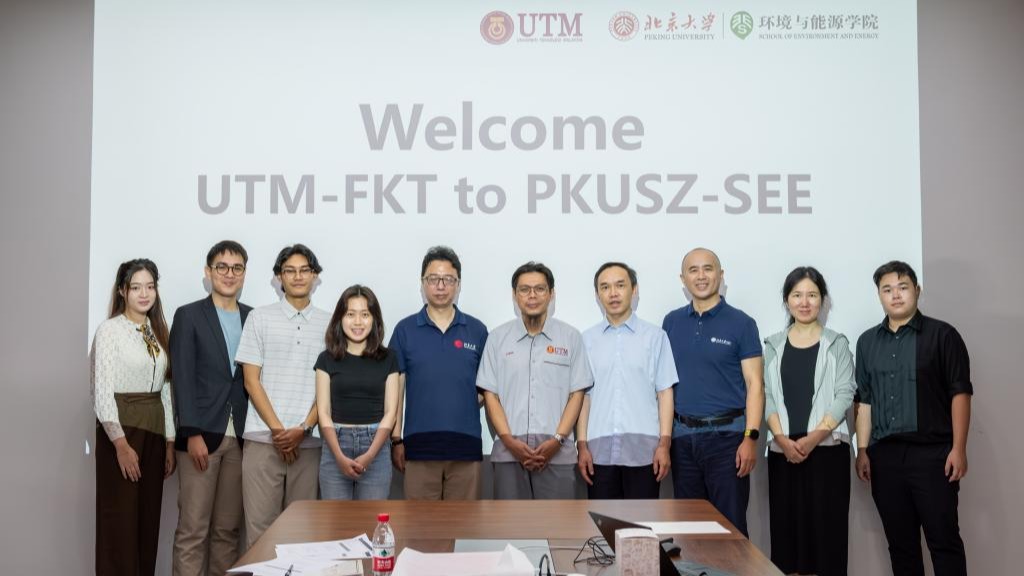On January 18, 2025, a student social practice team from Tsinghua University's Department of Hydraulic Engineering visited the School of Environment and Energy (hereinafter referred to as“SEE”) of Peking University to conduct an innovative exchange event focusing on themes such as smart water conservancy, water environment, and water ecology.
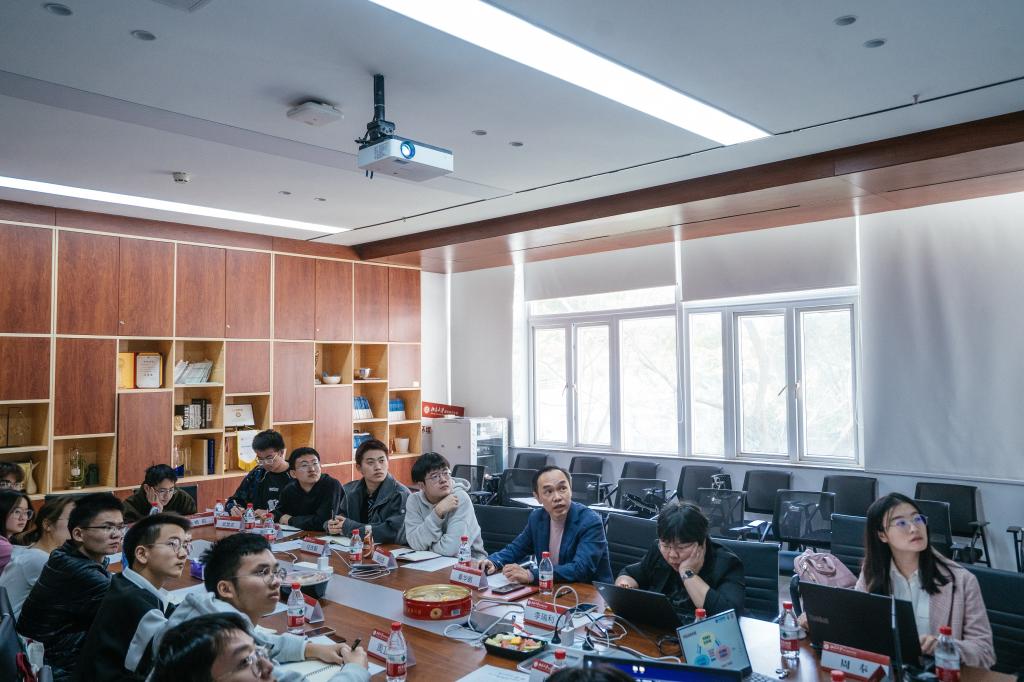
The meeting was hosted by Professor Huapeng Qin, the dean of SEE. He first extended a warm welcome to the faculty and students of Tsinghua University's Department of Hydraulic Engineering and briefly introduced the academic characteristics of SEE. Then, Professor Qin highlighted the research projects conducted by the school in the field of ecology and smart water systems.
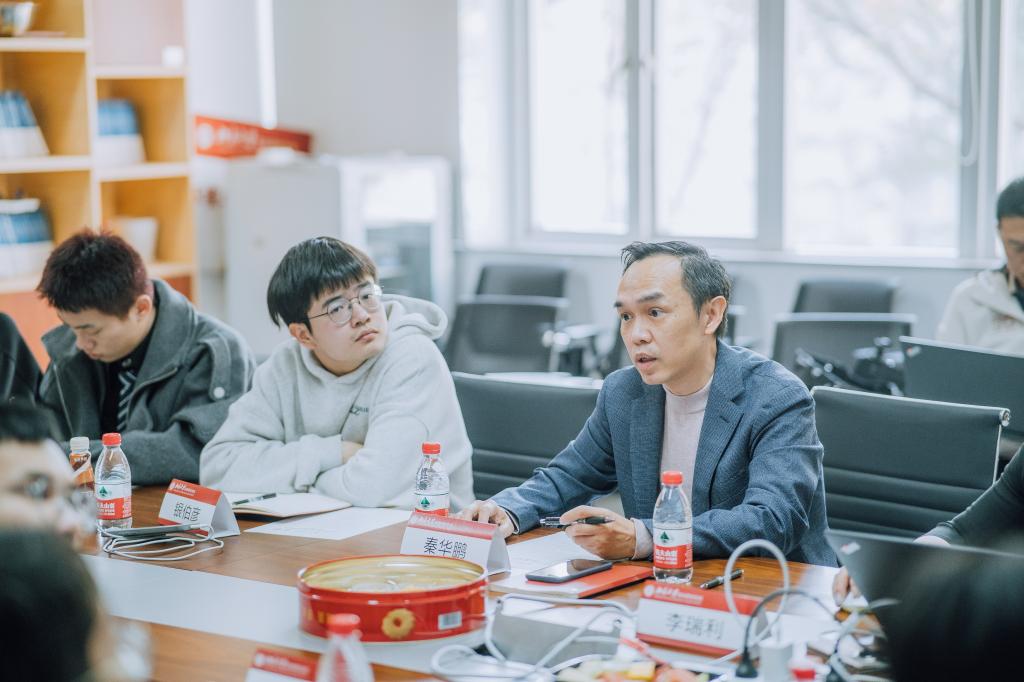
Subsequently, Boyan Yin, the counselor of Tsinghua University's Department of Hydraulic Engineering, and Qingyi Ren introduced the members of the visiting team and the purpose of their visit.
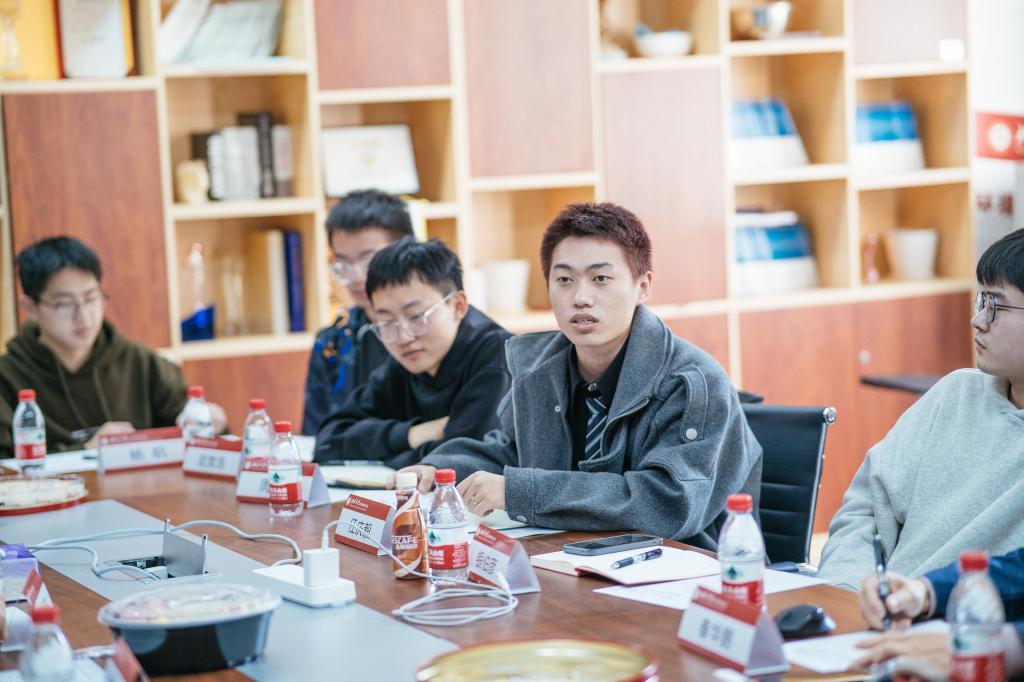
During the academic exchange session, teachers and students from SEE presented a series of fascinating academic reports on their respective research areas. These reports delved into frontier topics in the field of environmental and energy sciences, including machine learning-based information mining of evapotranspiration big data, precise monitoring and ecological assessment of coastal mangrove wetlands, resilient assessment and precise forecasting of urban waterlogging, and ecological safety assessment of large-scale canal projects, showcasing the strength and innovation capability of SEE in the field of smart river management.
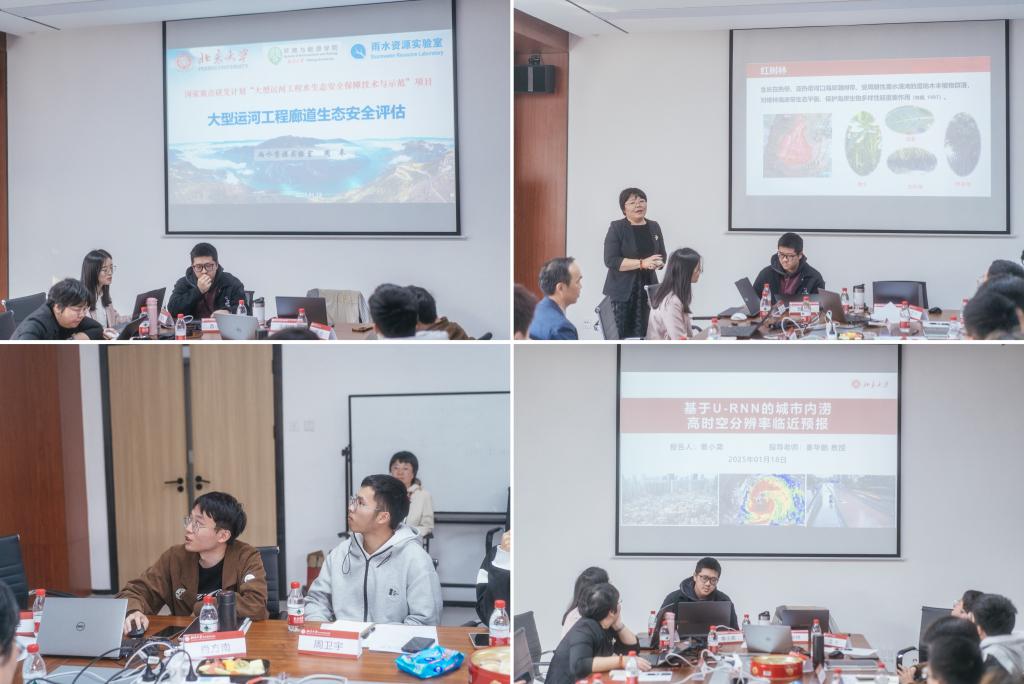
In the discussion session, teachers and students engaged in in-depth discussions about their respective research directions, methods, and future research.
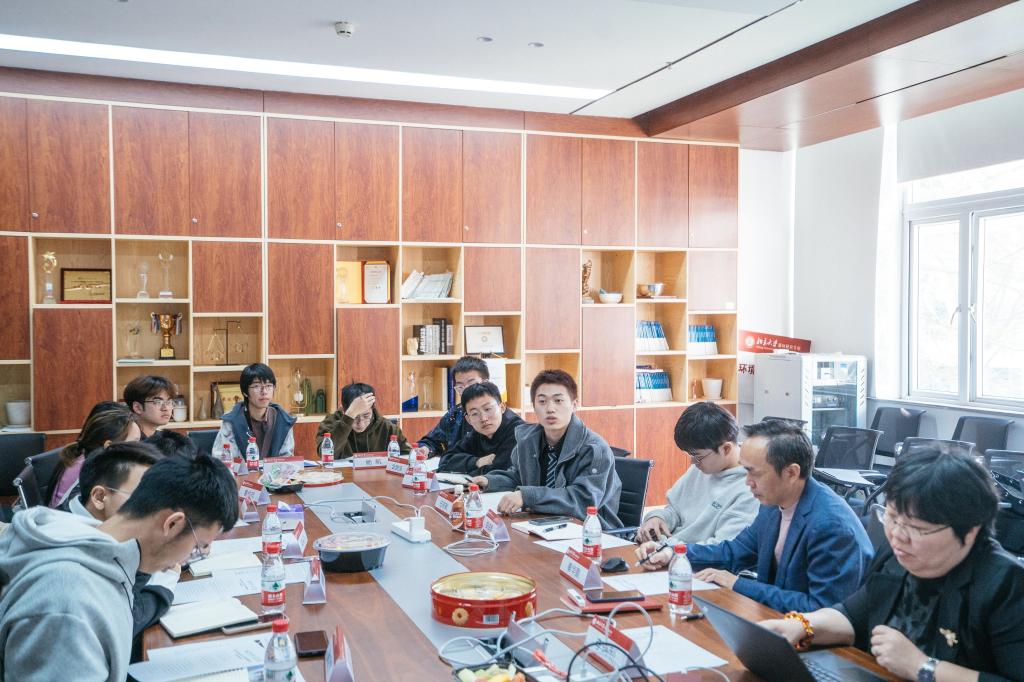
After the meeting, led by Professor Qin, the teachers and students visited the Peking University Mangrove Base. As an important research platform of the SEE, the Mangrove Base is dedicated to the research and protection of mangrove wetland ecosystems. The visiting teachers and students personally experienced the unique charm of the mangrove wetland and gained a deeper understanding of the important roles of mangroves in ecological protection and climate regulation.
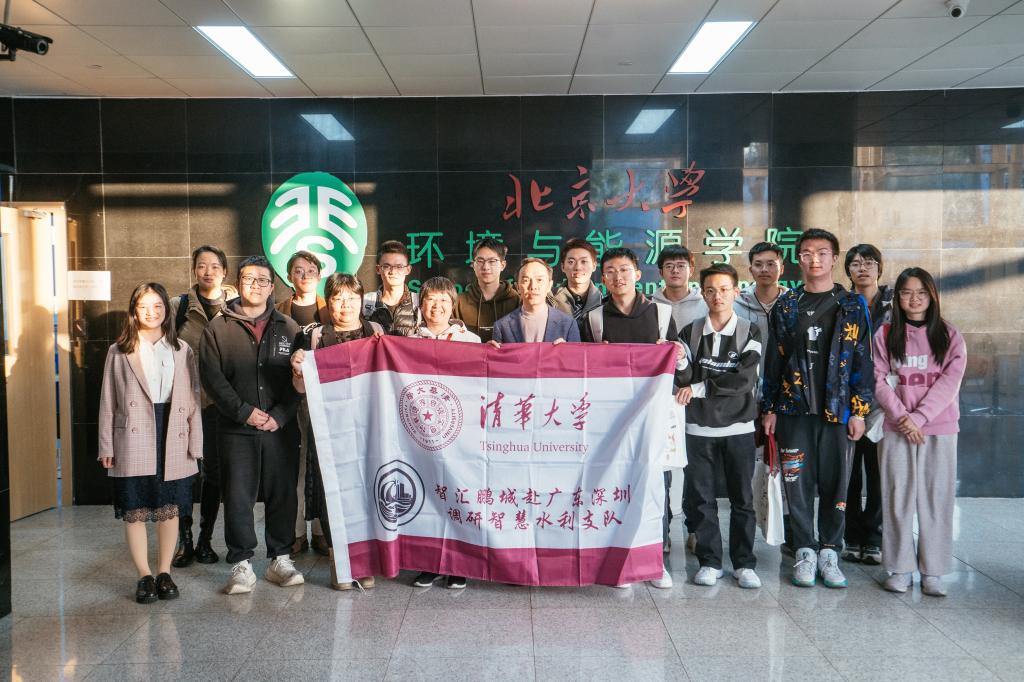
Finally, all participants took a group photo to commemorate this memorable academic exchange event. This event not only deepened the friendship between Tsinghua University’s Department of Hydraulic Engineering and SEE, but also strengthened the cooperative ties between the two institutions. Looking ahead, both schools are committed to continuing their spirit of open cooperation and mutual learning, jointly advancing scientific and technological progress and development in the fields of water conservancy, environment, and energy.
Text by Zeyi Liu
Photography by Junqi Mao






